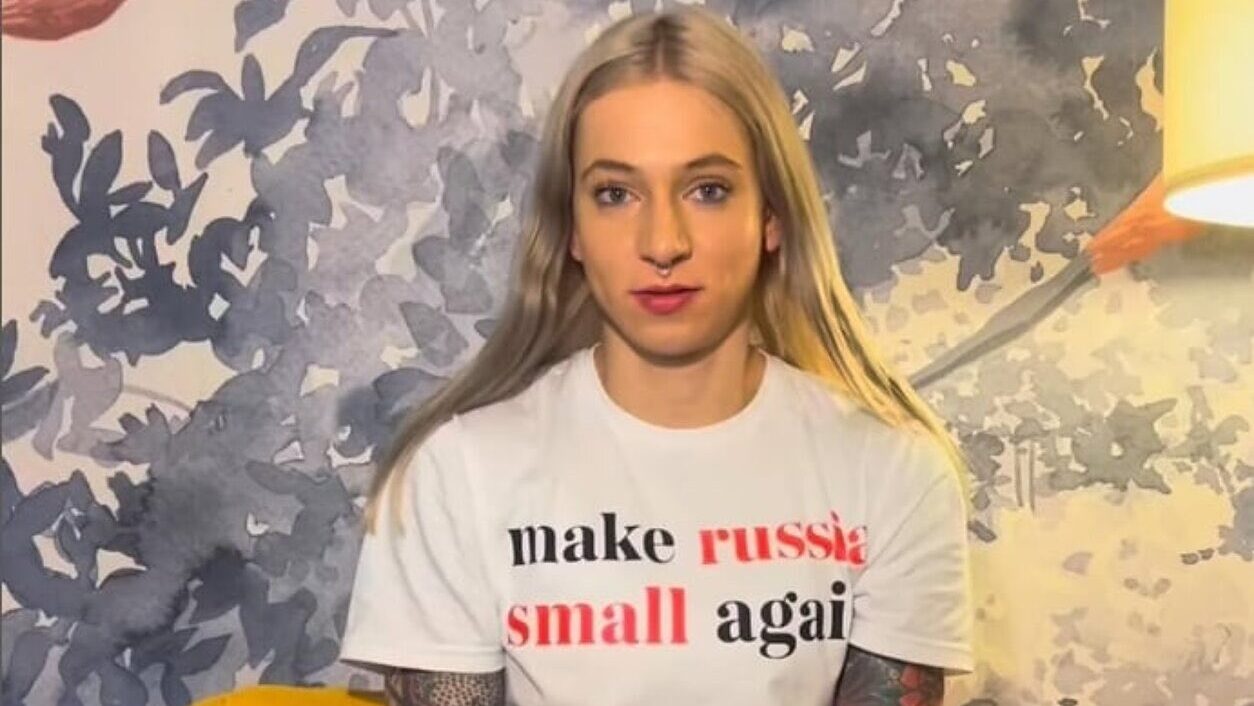Fitness
Lithuanian Athlete Disqualified for Anti-Russia Shirt at Budapest Fitness Championships

The Super Worlds 2024 – Functional Fitness Championships were held in Budapest this weekend. However, it was not the sporting performances that captured international attention. A member of the Lithuanian team, Kornelija Dūdaitė, was disqualified from the competition after posing next to the Russian team—competing under a neutral banner—while wearing a t-shirt emblazoned with the slogan ‘Make Russia Small Again.’
Here is a video of the incident:
After Dūdaitė was required to leave early under the rules, the Lithuanian team decided to stand by their athlete, withdrawing from the competition altogether. Lithuanian Foreign Minister Kęstutis Budrys also commented on the incident, stating that he supports Kornelija Dūdaitė because ‘no one should be punished for speaking out against aggression.’ He added that he is proud of Lithuanians ‘who courageously stand up for freedom and their values.’
Following Russia’s invasion of Ukraine, Russian athletes have been barred from competing under their national flag in most international sports events. They are left with two choices: either to forgo participation or to compete as neutrals. The rationale behind this policy—and the broader phenomenon of the West ‘retaliating’ against Russia by targeting athletes, actors, composers, and even centuries-old works of art—could fill volumes, but that is beyond the scope of this article.
According to Dūdaitė, however, the Russian athletes were not participating in a neutral capacity at the championships in Budapest. The Lithuanian athlete justified her political statement by pointing out that the Russian athletes were displaying national symbols while being officially referred to as ‘Russian athletes.’ The Lithuanian Functional Fitness Federation, in explaining its decision to withdraw, stated: ‘This is not compatible with our values.’
In a statement, the International Functional Fitness Federation (iF3) expressed regret over the withdrawal of Team Lithuania from the iF3 World Championships after the first day of competition. ‘We firmly believe that sport should remain apolitical and open to all,’ the federation stated. The iF3 also emphasized that it adhered to the International Olympic Committee’s 2023 guidelines, which permit Russian athletes to participate in international sporting events under certain restrictions.
‘We want to be clear that our Independent Neutral Athletes from Russia have abided by these restrictions on their end. They entered the competition as neutrals, marched under a neutral flag in the Opening Ceremony, and do not have any Russian symbols on their uniforms.’
However, the iF3 acknowledged that the name ‘Russia’ had been mistakenly displayed on athlete name cards, and for a brief period at the start of Day 1, the announcers referred to these competitors as ‘Russian athletes.’
‘As soon as the iF3 became aware of the issues, we collaborated with the local organizing team and the affected federations to resolve them as quickly as possible, while recognizing that adjustments made after the fact could not fully compensate for our error,’ the statement read. It further noted that the Lithuanian athlete was asked to change her t-shirt, as it was deemed to violate the sportsmanship clause of the iF3 rulebook; however, she refused to comply.
Politics and Sports: On or Off the Pitch?
For years, the question of whether athletes should express their political opinions has been a subject of significant controversy in the world of sports. This debate gained particular prominence in 2016, when Colin Kaepernick, then the San Francisco 49ers’ backup quarterback, knelt during the American national anthem to protest against the oppression of Black people. The act of kneeling, like many American progressive initiatives, gradually spread to the European sports world. By 2020, during the height of the Black Lives Matter movement, it was rare to find a national team—primarily in Western Europe—that did not respond to the pressure from progressive lobby groups.
A notable exception was Hungary. In 2021, Prime Minister Viktor Orbán declared that kneeling before kick-off was a ‘provocation’ and had ‘no place on the pitch.’ Orbán highlighted that ‘Hungarian athletes are expected to fight standing up.’
Around the same time as the kneeling, the practice of team captains wearing rainbow-coloured armbands on the pitch also gained popularity as a gesture of ‘support for members of the LGBTQ+ community.’
The outbreak of the war in Ukraine on 24 February 2022 marked another shift in the increasingly—and arguably inappropriately—intertwined relationship between sport and politics. Russian athletes were banned from competing in international competitions under their national flag, while more and more athletes began using sporting events to express their support either for Ukraine or, in some cases, for Russia.
One of the most notable incidents occurred in May 2022, when Russian gymnast Ivan Kuliak displayed the infamous ‘Z’ symbol—associated with Russian tanks and military vehicles in Ukraine—by taping it to his vest during a medal ceremony at a World Cup event. The act sparked widespread international condemnation, and Kuliak was subsequently banned from international sporting events for one year.
Related articles:









